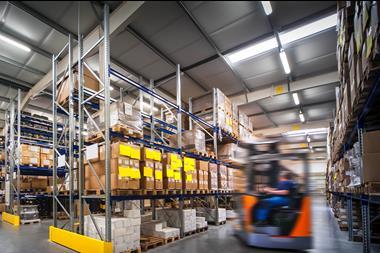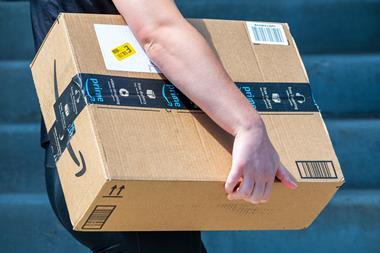It has never been more important for online retailers to broaden their offering across multiple sales channels, says Sacha Wilson, senior director tax technology solutions at Avalara
The spread of ecommerce in recent years has changed people’s shopping behaviour – a trend that has accelerated even more rapidly in the last year due to the pandemic.
A consumer trends survey showed 40% of consumers did more online shopping during lockdown with more than half predicting they will continue their online shopping post-lockdown. Even after non-essential stores reopened in June 2020, online sales remained high, and in-store shopper numbers were 57% lower than the same period the previous year.
As a result, the number of channels companies are using to reach customers globally is multiplying rapidly. Cloud technology has increased speed and efficiency through cross-functional implementations. This also enables consumers to shop at any time of the day, any day of the week – worldwide and in real-time. Companies are implementing new technology at pace in order to remain competitive. The following tips should help:
1. Build an omnichannel presence
To survive in a digital-first society, companies should not only have an ecommerce shop, but also an omnichannel presence. Consumers are looking for options and demand flexibility when shopping online. It is important for sellers to be present across platforms and devices. Organisations can and should use a mix of in-person, ecommerce, online marketplaces, subscriptions, live streaming events and other channels to reach customers in a variety of ways.
While this switch to omnicommerce opens up numerous opportunities for sellers, it also creates a complex ecosystem of applications and systems. From platforms to billing systems to supply chain management – different systems are required to manage inventory, host products, process transactions or enable online and in-store returns.
To be successful in omnicommerce, companies not only need to expand their sales channels but also consider technologies that can be easily integrated into their business to increase transparency across the company and create a seamless customer experience.
2. Digitise the customer experience
The digital customer journey extends from customer discovery to checkout, to delivery and ultimately beyond if the customer is unexpectedly not satisfied with the product. Consumers expect access to responsive ecommerce websites that offer personal shopping benefits, including one-to-one support via live chat or options for trying on products digitally.
Different payment methods should also be available and the security of personal data must be guaranteed. Timely dispatch, notifications and updates on delivery status and the ability to return goods have become standard consumer expectations.
Using cloud-based technologies to optimise the entire customer journey is a scalable way for companies to keep pace with customer demand while delivering a personalised and enjoyable experience to each customer. For example, leveraging out-of-the-box, cloud-based ecommerce platforms is an easy way for sellers to work with the technology integrations required to personalise the browsing experience and ensure an accurate checkout process.
3. Digitise processes
As companies grow, be it through omnicommerce, acquisitions, new product portfolios or geographic expansion, so does the complexity of business operations. To enable efficient and scalable growth, companies should identify processes that can be digitised and automated, as this reduces the burden on human and financial resources. By digitising lower-priority processes, companies can allocate resources to more complex and important projects.
4. Be prepared for changes in tax rules and regulations
Tax laws around the world have changed rapidly in recent years. From US Nexus laws to e-invoicing within the EU and Europe in general, the complexity of tax regulations and obligations for digital businesses is enormous. Even as pandemic restrictions ease, it can also be assumed that the tax authorities of all countries will be faced with the challenge of compensating for budgets or lost income.
This, in turn, can lead to trends, including further taxes on goods and services, as well as requiring even the smallest sellers to comply with tax rules that previously only affected large ecommerce retailers.
In the new era of global trade, companies need to know and understand not only the tax obligations in their state or country but also abroad. Since companies can use ecommerce to sell their goods worldwide, they are exposed to a number of cross-border compliance obligations. To stay competitive and successful, they need to keep these changing rules in mind. Tax software such as Avalara Cross Border can help keep up with the rapid changes and stay protected.
While customers are simply happy about the delivery of goods, retailers must pay close attention to import and trade regulations when selling and shipping goods (inter)nationally. This is becoming increasingly logistically challenging and many companies are dependent on operational support from logistics service providers.
In addition, there is pressure to meet customer expectations and to deliver the goods quickly and easily. Companies can only tackle these challenges and take advantage of changed consumer behaviour for themselves through the use of suitable software.
Sacha Wilson will join a panel of ecommerce experts at Avalara’s Virtual Ecommerce Summit on May 6. You can register for free here.

Sacha Wilson is senior director tax technology solutions at Avalara
Sacha Wilson helps businesses of all sizes automate the complexities of global tax compliance. Wilson’s background in business development and ecommerce spans more than 20 years and covers blue-chip businesses such as Amazon and ArcelorMittal, as well as several dotcom start-ups.
During 11 years at Amazon, he launched and grew a number of programmes including Amazon’s Marketplace, Fulfilment by Amazon, Amazon Pay and Product Ads. He brings depth in understanding of ecommerce and the tax issues facing European businesses involved in global trade.





























